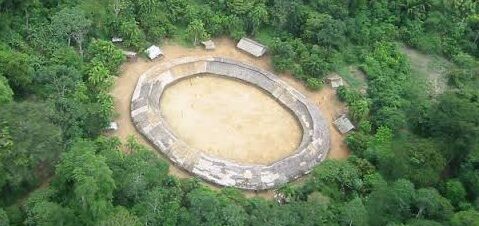But what is the time frame?
It is a rule that delimits indigenous territories only for communities that prove that they already lived in a certain place when the Federal Constitution was promulgated (1988).
ADVERTISING
In practice, the bill that formalizes the time frame (PL 490) – drawn up in 2007 – attempts to take away from the Executive Branch, through changes in current legislation, the full right to decide on land demarcations, giving space for parliamentarians to legislate on the subject, and thus “guarantee constitutional harmony” on issues that involve the demarcations of indigenous lands.
What exactly is being discussed in the Supreme Court?
Specifically, the STF debates the case of the Ibirama-Laklano territory, in Santa Catarina (south), which in 2009 lost its status as indigenous land after a first instance decision on the grounds that the communities were not living there in 1988.
The Supreme Court's decision on the issue will also apply to all actions – more than 80 cases of land disputes – that are in other instances of Justice. In other words, what the STF defines will have repercussions throughout the country and could represent a great loss (if the time frame is accepted) for indigenous peoples.
ADVERTISING
In April, President Lula approved six new indigenous reserves, the first in five years, as Jair Bolsonaro's government fulfilled the promess of not demarcating “not one more centimeter” of land during his mandate.
And how is the vote in the Supreme Court?
The score is tied at 1 to 1. The rapporteur of the case, minister Edson Fachin, has already spoken out against the measure, as he understands that article 231 of the Constitution recognizes the right of permanence of these original peoples regardless of the date on which they occupied the land .
Minister Nunes Marques, in turn, voted in favor of the thesis, arguing that “the interests of indigenous people do not override the interests of national defense”.
ADVERTISING
Is the time frame project unconstitutional?
This is exactly the discussion surrounding the issue and that is why it ended up in the country's supreme court.
In an interview with the website Congresso em Foco, jurist and former STF minister, Ayres Britto, considers the project unconstitutional, as demarcation is an exclusive issue of the Constitution and is a basic right of indigenous peoples.
Britto was the rapporteur of an also famous trial, in the Raposa Terra do Sol territory, in Roraima, in 2009. The concept of a time frame began there, although the minister voted to maintain the indigenous reserve.
ADVERTISING
“The time frame thesis was not included in my original vote. It was brought to light in a vote by Minister Carlos Alberto Direito. As the vote was defeated, I had to include the time frame in the ruling”, says the former minister.
Britto further explained that he registered his reservations about the time frame thesis at the time.
“I considered that it is necessary to highlight the situations in which indigenous communities, on October 5, 1988, might not have been occupying that land due to reasons of expulsion, expulsion, violence. In these cases, their right to demarcation should persist,” he recalled.
ADVERTISING
Read also
* The text of this article was partially generated by artificial intelligence tools, state-of-the-art language models that assist in the preparation, review, translation and summarization of texts. Text entries were created by the Curto News and responses from AI tools were used to improve the final content.
It is important to highlight that AI tools are just tools, and the final responsibility for the published content lies with the Curto News. By using these tools responsibly and ethically, our objective is to expand communication possibilities and democratize access to quality information. 🤖




